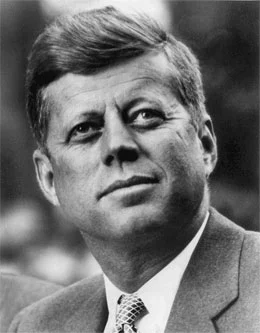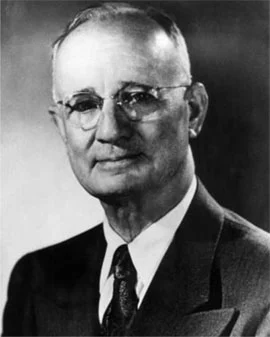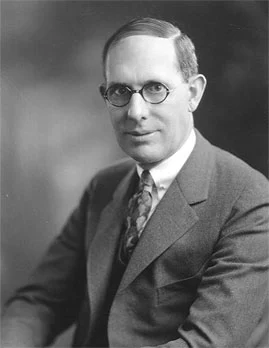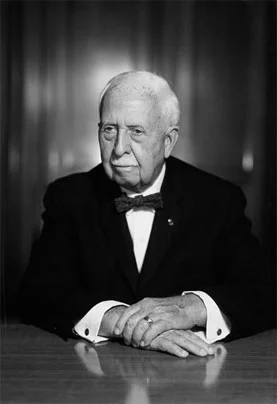Decision Making
By Bob Proctor
There is a single mental move you can make which, in a millisecond, will solve enormous problems for you. It has the potential to improve almost any personal or business situation you will ever encounter … and it could literally propel you down the path to incredible success. We have a name for this magic mental activity … it is called DECISION.
Decisions, or the lack of them, are responsible for the breaking or making of many a career. Individuals who have become very proficient at making decisions, without being influenced by the opinions of others, are the same people whose annual incomes fall into the six and seven figure category. However, it’s not just your income that is affected by decisions; your whole life is dominated by this power. The health of your mind and body, the well being of your family, your social life, the type of relationships you develop … all are dependent upon your ability to make sound decisions.
You would think anything as important as decision making, when it has such far reaching power would be taught in every school, but it is not. To compound the problem, not only is decision-making missing from the curriculum of our educational institutions, up until recently it’s also been absent from most of the corporate training and human resource programs available.
So, how is a person expected to develop this mental ability? Quite simply, you must do it on your own. However, I think it’s important to understand that it’s not difficult to learn how to make wise decisions. Armed with the proper information and by subjecting yourself to certain disciplines, you can become a very effective decision maker.
You can virtually eliminate conflict and confusion in your life by becoming proficient at making decisions. Decision-making brings order to your mind, and of course, this order is then reflected in your objective world … your results.
James Allen may have been thinking of decisions when he wrote,
We think in secret and it comes to pass.
Environment is but our looking glass.
No one can see you making decisions but they will almost always see the results of your decisions. The person who fails to develop their ability to make decisions is doomed because indecision sets up internal conflicts which can, without warning, escalate into all out mental and emotional wars. Psychiatrists have a name to describe these internal wars, it is ambivalence. My Oxford Dictionary tells me that ambivalence is the co-existence in one person of opposite feelings toward the same objective.
You do not require a doctorate degree in psychiatry to understand that you are going to have difficulty in your life by permitting your mind to remain in an ambivalent state for any period of time. The person who does permit it to exist will become very despondent and virtually incapable of any type of productive activity. It is obvious that anyone who finds themselves in such a mental state is not living; at best, they are merely existing. A decision or a series of decisions would change everything.
A very basic law of the universe is “create or disintegrate”. Indecision causes disintegration. How often have you heard a person say, “I don’t know what to do.” How often have you heard yourself say, “What should I do?” Think about some of the indecisive feelings you and virtually everyone on this planet experience from time to time.
LOVE THEM
LEAVE THEM
QUIT
STAY
DO IT
DON'T DO IT
GO BANKCRUPT
NO DON'T
GO TO WORK
WATCH TV
BUY IT
DON'T BUY IT
SAY IT
DON'T SAY IT
TELL THEM
DON'T TELL THEM
Everyone, on occasion, has experienced these feelings of ambivalence. If it happens to you frequently, decide right now to stop it. The cause of ambivalence is indecision, but we must keep in mind that the truth is not always in the appearance of things. Indecision is a cause of ambivalence, however it is a secondary cause, it is not the primary cause. I have been studying the behavior of people who have become very proficient at making decisions for over a quarter century. They all have one thing in common. They have a very strong self-image, a high degree of self-esteem. They may be as different as night is to day in numerous other respects, but they certainly possess confidence. Low self-esteem or a lack of confidence is the real culprit here. Decision makers are not afraid of making an error. If and when they make an error in their decision, or fail at something, they have the ability to shrug it off. They learn from the experience but they will never submit to the failure.

Successful people make decisions quickly and firmly. Unsuccessful people make decisions slowly, and they change them often.
- Napoleon Hill -
Every decision maker was either fortunate enough to have been raised in an environment where decision-making was a part of their upbringing, or they developed the ability themselves at a later date. They are aware of something that everyone, who hopes to live a full life, must understand: Decision-making is something you cannot avoid.
That is the cardinal principle of decision-making. DECIDE RIGHT WHERE YOU ARE WITH WHATEVER YOU’VE GOT. This is precisely why most people never master this important aspect of life. They permit their resources to dictate if and when a decision will or can be made. When John Kennedy asked Werner Von Braun what it would take to build a rocket that would carry a man to the moon and return him safely to earth, his answer was simple and direct. “The will to do it.” President Kennedy never asked if it was possible. He never asked if they could afford it or any one of a thousand other questions, all of which would have … at that time … been valid questions.

President Kennedy made a decision … he said, we will put a man on the moon and return him safely to earth before the end of the decade. The fact that it had never been done before in all the hundreds of thousands of years of human history was not even a consideration. He DECIDED where he was with what he had. The objective was accomplished in his mind the second he made the decision. It was only a matter of time … which is governed by natural law before the goal was manifested in form for the whole world to see. I was … just hours ago … in an office with three people. We were discussing the purchase of shares in a company. I was selling, they were buying. After a reasonable amount of time, one of the partners asked me when I wanted a decision. I replied, “Right now.” I said, “You already know what you want to do.” There was some discussion about money. I pointed out that money had nothing to do with it. Once you make the decision you will find the money … every time. If that is the only benefit you receive from this particular message on decision-making, burn it into your mind. It will change your life. I explained to two of these people that I never let money enter my mind when I am deciding whether I will or will not do something. Whether I can afford it or not is never a consideration. Whether I want to or not is the only consideration. You can afford anything, there is an infinite supply of money. All of the money in the world is available to you, when the decision is firmly made. If you need money, you will attract it. I am well aware there are any number of people who will say that is absurd. You can’t just decide to do something if you do not have the necessary resources. And that’s fine if that is the way they choose to think. I see that as a very limiting way of thinking. In truth, it probably is not thinking at all … it is very likely an opinion being expressed that was inherited from another older member of their family who did not think either. Thinking is very important. Decision makers are great thinkers. Do you ever give much consideration to your thoughts? … how they affect the various aspects of your life? Although this should be one of our most serious considerations, for many people it is not. There is a very small select few who make any attempt to control or govern their thoughts. Anyone who has made a study of the great thinkers, the great decision makers, the achievers of history, will know they very rarely agreed on anything when it came to the study of human life. However, there was one point on which they were in complete and unanimous agreement and that was, “We become what we think about.” What do you think about? You and I must realize that our thoughts ultimately control every decision we make. You are the sum total of your thoughts. By taking charge this very minute, you can guarantee yourself a good day. Refuse to let unhappy, negative people or circumstances affect you. The greatest stumbling block you will encounter when making important decisions in your life is circumstance. We let circumstance get us off the hook when we should be giving it everything we’ve got. More dreams are shattered and goals lost because of circumstance than any other single factor.

How often have you caught yourself saying, “I would like to do or have this but I can’t because…” Whatever follows “because” is the circumstance. Circumstances may cause a detour in your life but you should never permit them to stop you from making important decisions.
Napoleon said, “Circumstances, I make them.”
The next time you hear someone say they would like to vacation in Paris, or purchase a particular automobile but they can’t because they have no money, explain they don’t need the money until they make a decision to go to Paris or purchase the car. When the decision is made, they will figure out a way to get the amount needed. They always do. Many misguided individuals try something once or twice and if they do not hit the bulls-eye, they feel they are a failure. Failing does not make anyone a failure, but quitting most certainly does and quitting is a decision. By following that form of reasoning, you would have to say when you make a decision to quit, you make a decision to fail. Every day in America, you hear about a baseball player signing a contract, which will pay him a few million dollars a year. You should try to keep in mind … that same player misses the ball more often than he hits it when he steps up to the plate.
Everyone remembers Babe Ruth for the 714 home runs he hit and they rarely mention that he struck out 1,330 times.


Charles F. Kettering said, and I quote, “When you’re inventing, if you flunk 999 times and succeed once, you’re in.”
That is true of just about any activity you can name, but the world will soon forget your failures in light of your achievements. Don’t worry about failing, it will toughen you up and get you ready for your big win. Winning is a decision. Many years ago Helen Keller was asked if she thought there was anything worse than being blind. She quickly replied that there was something much worse. She said, “The most pathetic person in the world is a person who has their sight but no vision.” I agree with Helen Keller.


At 91, J.C. Penny was asked how his eyesight was. He replied that his sight was failing but his vision had never been better. That is really great, isn’t it?
When a person has no vision of a better way of life, they automatically shut themselves in a prison; they limit themselves to a life without hope. This frequently happens when a person has seriously tried, on a number of occasions, to win, only to meet with failure time after time. Repeated failures can damage a person’s self-image and cause them to lose sight of their potential. They therefore make a decision to give up and resign themselves to their fate.
When a person has no vision of a better way of life, they automatically shut themselves in a prison; they limit themselves to a life without hope. This frequently happens when a person has seriously tried, on a number of occasions, to win, only to meet with failure time after time. Repeated failures can damage a person’s self-image and cause them to lose sight of their potential. They therefore make a decision to give up and resign themselves to their fate. Take the first step in predicting your own prosperous future. Build a mental picture of exactly how you would like to live. Make a firm decision to hold on to that vision and positive ways to improve everything will begin to flow into your mind. Many people get a beautiful vision of how they would like to live but because they cannot see how they are going to make it all happen, they let the vision go. If they knew how they were going to get it or do it, they would have a plan not a vision. There is no inspiration in a plan but there sure is in a vision. When you get the vision, freeze frame it with a decision and don’t worry about how you will do it or where the resources will come from. Charge your decision with enthusiasm … that is important. Refuse to worry about how it will happen.
